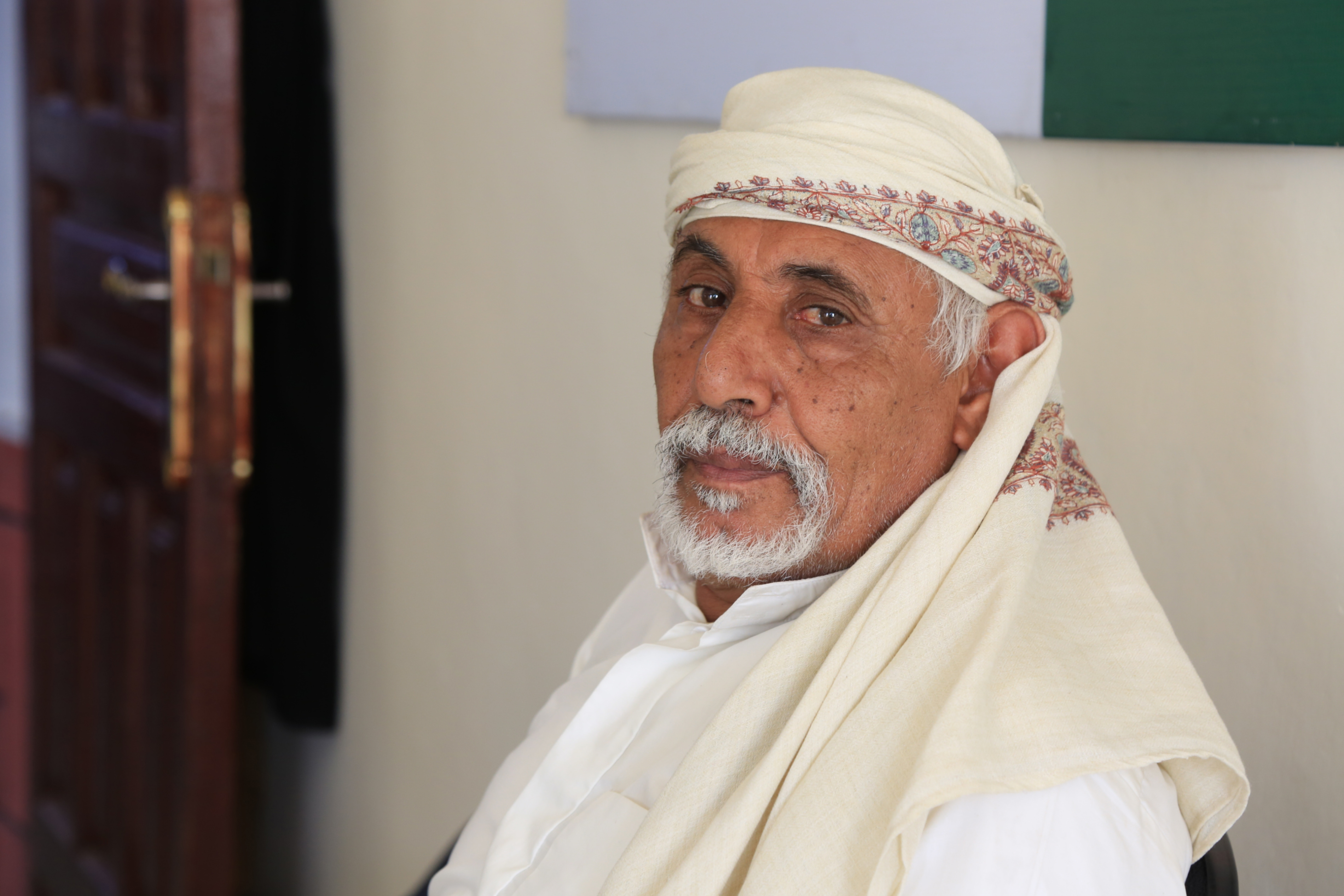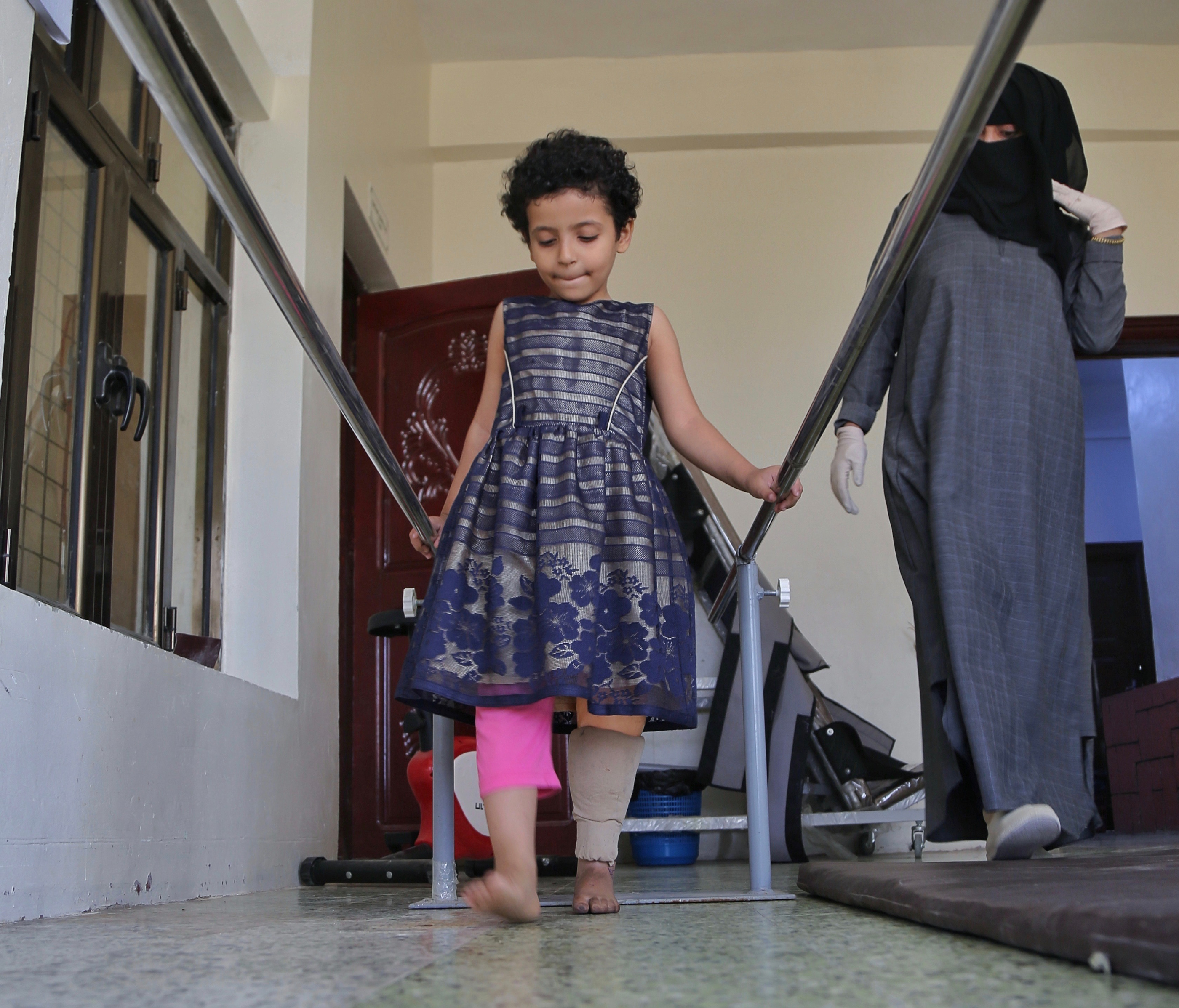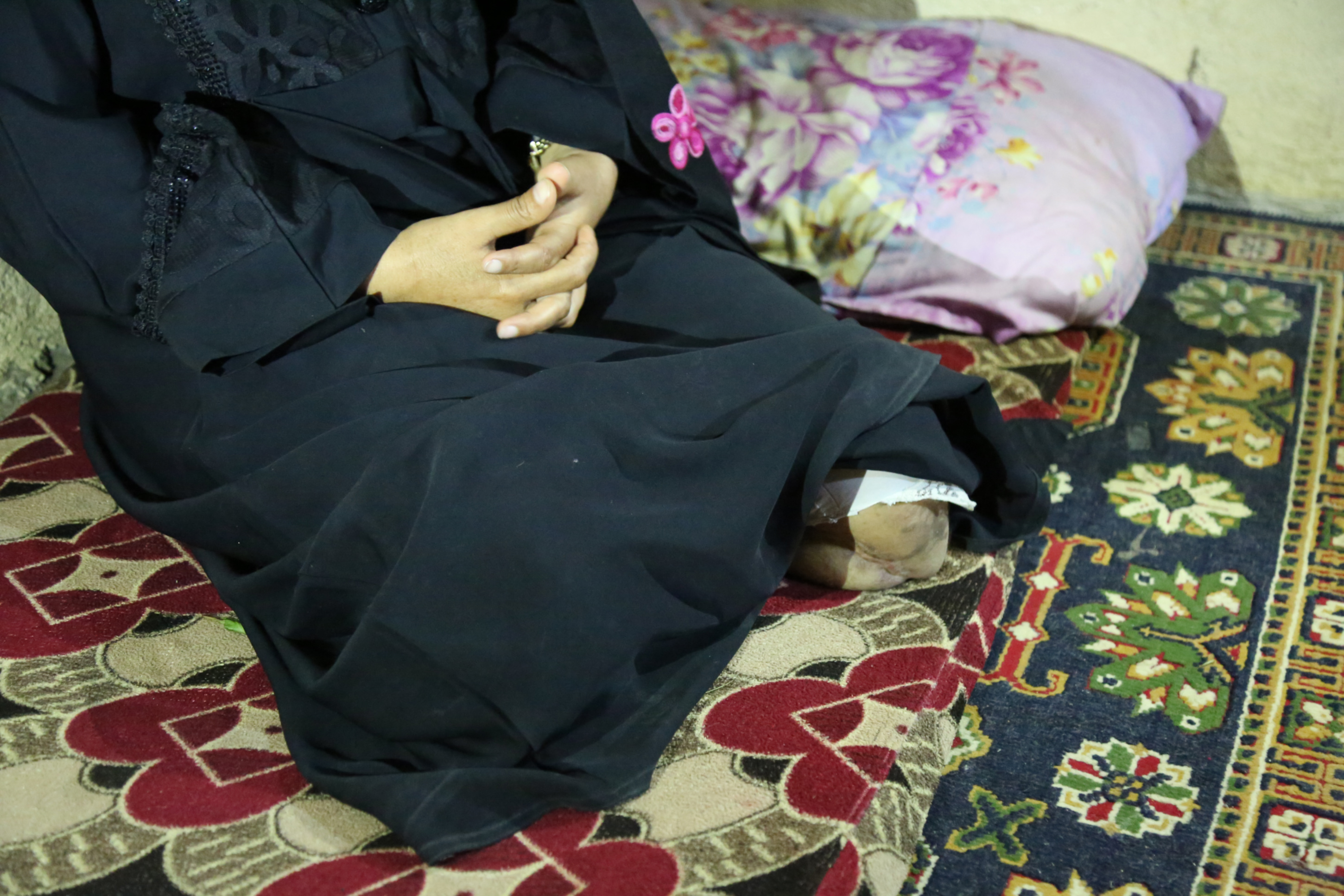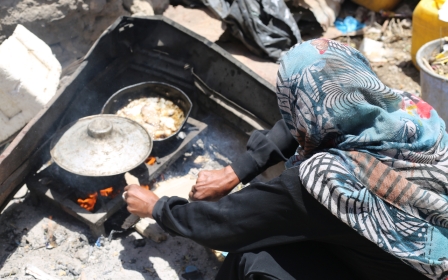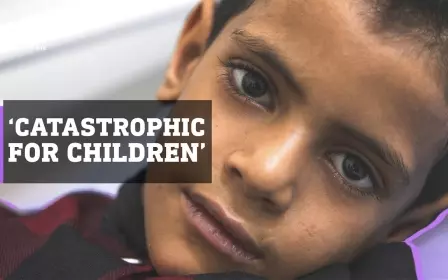Stolen limbs: Yemenis disabled by war see little hope for the future
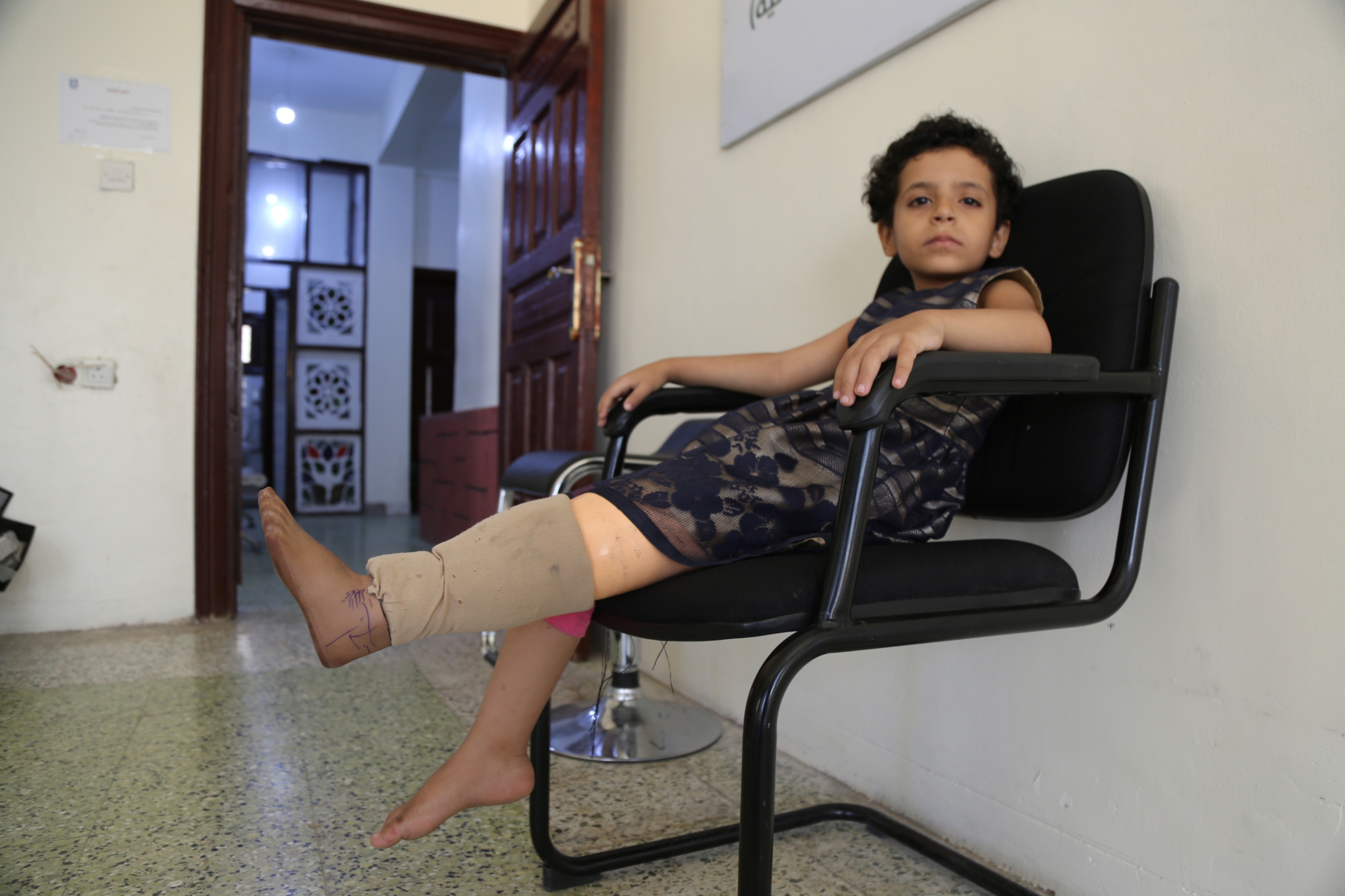
Hope is the only thing that many Yemenis still cling on to, often having lost everything during the past six years of war.
Those who lost their homes, hope to rebuild them, the unemployed hope to return to work, but people who have lost all or parts of their legs during the conflict cannot hope to walk again normally.
Below, Middle East Eye speaks to a farmer who can no longer look after his farm, a woman who was about to marry and cannot now leave her home, and the mother of a child who lost her leg.
While they were victims of different weapons - landmines, shelling, or air strikes - they all share the same suffering.
'I stepped on a landmine'
New MEE newsletter: Jerusalem Dispatch
Sign up to get the latest insights and analysis on Israel-Palestine, alongside Turkey Unpacked and other MEE newsletters
Abdu Saeed, 65, is a father of 13 children, some of whom have already married and opened their own houses while others still live with him in the same home.
'I can't hope for the future to be better, and if all people ever forget this war one day, we won’t forget it'
- Abdu Saeed, farmer
Saeed lives in the Thaabat area of Taiz city, which has been a front line in the war.
Although there are no clashes in the area now, landmines are still killing and maiming civilians.
Saeed used to work as a farmer, but in 2019 he stepped on a landmine and lost his leg.
"I'm a resident of a mountainous area, and I used to work in farming, collecting firewood and grazing livestock. On 4 April 2019, I was grazing the livestock in the mountain, and before sunset I went to bring the livestock back home," he said to Middle East Eye.
"I stepped on a landmine, and it threw me several metres. People took me to a hospital, and then my leg was amputated from above the knee. The other [one] was broken. I'm still suffering from the broken one."
Saeed has been visiting the Prosthetic Centre in Taiz city to receive medical care and training for his legs.
"Because I'm old, the bones don't grow easily, and I can't move without crutches," he said.
Saeed said two of his neighbours have met the same fate in the same area, which he said is full of landmines.
Even livestock have faced a similar fate. "My donkey was killed by a landmine in that mountain," he said.
"Before the war, I walked freely and was grazing my livestock, collecting firewood and working on the farm.
"I used to do any available work and provide for my family, but now I'm a disabled man sitting at home and can't do any work."
Like many disabled people, Saeed needs someone to take care of him, especially when he leaves his home to visit the Prosthetic Centre, and he worries so he adds a burden to his children
"I used to help my family members, and now I need someone to help me," he said.
"Life became very difficult after the disability because I became a dependent on others for everything."
Grazing his livestock had formed the main source of income for Saeed's family.
He is pessimistic about the future and believes that if the war ever ends disabled people will be powerful evidence of the violence against civilians in Yemen.
"Everything can be fixed and rehabilitated, but when you lose your leg you became disabled forever," he said.
"I can't hope for the future to be better, and if all people ever forget this war one day, we won't forget it."
'I was very sad to hear the news'
Five-year-old Alaa Wesam seems to be a happy girl despite having her leg amputated after shelling hit a neighbouring house.
It is difficult for the child to recall what happened, so her mother Muna told MEE the tragic story.
"It was at 3pm on 2 November 2017 when shelling fell on a neighbouring house," she said.
"Shrapnel from the shelling landed near our house door while Alaa was in the hall. She was wounded by the shrapnel in her leg muscles.
"We took her to a hospital while she bled, doctors did some emergency intervention to stop the bleeding and sent us to another hospital.
"Doctors immediately took her to the operating room at 5pm and didn't leave it until midnight. I couldn't see her until the next day."
Doctors immediately took her to the operating room at 5pm and didn't leave it until midnight. I couldn't see her until the next day'
- Muna Wesam, Alaa's mother
Alaa was still in a bad shape after the operation, and a week later doctors decided to amputate her leg.
Muna recalls the moments with tears in her eyes.
"I was very sad to hear the news about the amputation as the injury did not seem big in the beginning, but they did it."
She says she is sad about her daughter but also about the fact that many children in Yemen face the same situation and need to adapt to a new life without a leg.
Between 2015 and 2020, at least 3,153 children died in Yemen and 5,660 children have been wounded, according to a report by Unicef.
On average, 50 children are killed and 90 are wounded or permanently disabled each month. The vast majority are harmed by explosive weapons, and the consequences can be wide-ranging.
'Lost everything beautiful'
Dalilah Abdu Ahmed, 30, was engaged to a man from her village when a landmine destroyed all her dreams, killing the happiness of Dalilah and her family.
"Two years ago there was a wedding in our village, and I went to fetch water so we could have enough water at home before I left for the wedding," she said.
"A landmine exploded under my leg near to the water tank. My cousin tried to help me but she stepped on another landmine and lost her leg.
"I was shouting to people not to approach as there were many landmines. My father risked his life and took us to hospital."
The hospital was around an eight-hour journey from Dalilah's village, and she and her cousin arrived in bad condition.
'I was enjoying a comfortable life, I had a shop, farms, livestock and I was hoping to marry, but now as you can see I'm a disabled woman who has lost everything beautiful in this life'
- Dalilah Abdu Ahmed
Both women had lost a lot of blood, leading doctors to amputate their legs in order to save their lives.
"Before the disability, I was engaged to someone from our village, and we were about to celebrate our wedding, but when my leg was amputated he didn't visit me for four months and then he decided not to marry me," said Dalilah. "He went to look for another girl."
Delilah comes from a village where people depend on farming and livestock to provide for their families, and she herself used to have a shop.
"I was enjoying a comfortable life. I had a shop, farms, livestock, and I was hoping to marry, but now as you can see I'm a disabled woman who has lost everything beautiful in this life."
Remote explosive devices have caused at least 5,500 casualties in Yemen since 2015.
Eighty percent of those casualties have occurred since 2017, according to a 2019 report by ACLED, a non-profit organisation that collects and collates data on conflicts around the world.
Middle East Eye delivers independent and unrivalled coverage and analysis of the Middle East, North Africa and beyond. To learn more about republishing this content and the associated fees, please fill out this form. More about MEE can be found here.


